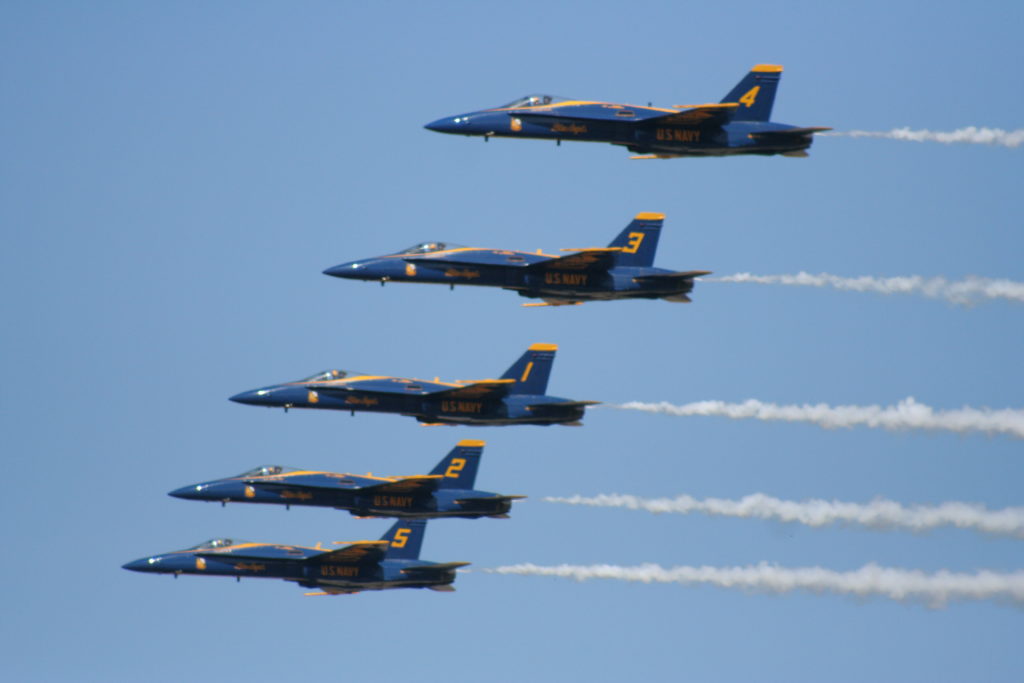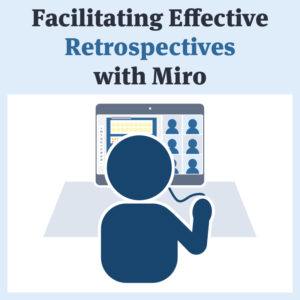Save your team from hours of frustrating meetings and months (or years) of struggling with marginal results.
Most teams are working remotely now, at least some of the time. And many teams are fully distributed with everyone working from home. In this landscape, Scrum Masters, Coaches, and Team Leaders are searching for more effective ways to connect, collaborate, and improve as more and more retros are failing to solicit honest reflection, feedback, and continuous improvement. Maybe retros have even become a source of frustration, boredom, wasted time and energy for you and your team. It’s brutal.
But it doesn’t have to be.
You don’t have to resign yourself to creating subpar experiences with remote and distributed retrospectives. We’ve uncovered some very cool techniques that have helped our clients get as much benefit, and in most cases even MORE benefit, from their retrospectives.
We’re seeing facilitators that use these techniques go into their very next retrospective and get their teams focused on the important data, reflecting on its impact, discovering new possibilities, and taking clear actions to improve it. You already know that the retrospective is the most important aspect of Scrum because it improves everything about your team’s effectiveness. So improving your retro is a huge multiplier! Your team gets better, your peers and boss notice something’s different, your customers and stakeholders are happier – it makes the whole promise of Agile come alive!
Why do the Blue Angels do a retrospective after EVERY flight?
The Blue Angels team is made up of active-duty Navy and Marine aviators, each service man and woman bringing their experience and expertise from their service in the Navy and Marine Corps fleets. Their Commanding Officer describes the team in this way: “Every member understands and embraces the importance of teamwork and strives daily to ensure our flight demonstration exemplifies the pride, professionalism and precision found in every facet of the U.S. Navy and Marine Corps.”

Have you ever witnessed a Blue Angels performance or flyover? There’s something exciting about hearing the rumble of engines from a distance and hearing them grow louder as the Blue Angels fly closer. People run into the streets to catch a glimpse, their heads tipped back to watch the skies. When the jets arrive and you see the speed and precision of them flying in tight formation (only 18 inches apart!), you know you’ve witnessed something special. Imagine trying to drive your car at top speed (still significantly slower than Blue Angels Jets) 18 inches apart in formation with other cars on the freeway. It would be impossible to do without a plan, without teamwork, without trust.
Former Blue Angels leader Greg “Boss” Wooldridge calls debriefs (their word for retrospectives) a “game changer” in elevating team performance. Blue Angels debriefs take as long as, or longer than, the pre-show briefings. “Too often, debrief has a bad name,” he said, noting that many people wince at the idea because debriefs bring up what went wrong. But the Blue Angels see it as an opportunity for reflection, a commitment to fix issues and a time for mentoring or being mentored. Learn more from this article: Blue Angels ‘Boss’ Streese Need for Debrief in Ops.
How do you get better and have the kind of retrospectives that help high performing teams like the Blue Angels get better?
We’ve built an entire online course.
Facilitating Effective Retrospectives with Miro

Facilitating Effective Retrospectives is our online course for ScrumMasters, coaches, or anyone else who needs to facilitate better retrospectives.
You won’t find a trite or empty promise of some magic formula here. This course has been carefully crafted from 35 years of collective experience working with hundreds of teams by expert facilitators and trainers, Richard Lawrence and Peter Green.
We created this course because we see how much and how quickly great retrospectives can help a team grow. And we see how much people struggle to use retrospectives well over the long haul.
In Facilitating Effective Retrospectives, we share everything Richard and Peter have learned about great retrospectives from years of experience and experimentation. You’ll find clear, actionable, and inspiring (yes, inspiring!) content to help you as you build new skills.
Get Instant Access – Register Now!
You’ll also examine what makes retros ineffective and reframe unhelpful patterns and assumptions. See if any of the following sound familiar:
- “My team doesn’t believe this is the best use of their time.”
- “Our team is too big to run retros effectively or efficiently.”
- “Trying to get people to contribute something meaningful is like pulling teeth.”
- “We talk about improvement all the time anyway.”
- “We’re good enough now that we don’t need retros.”
We’ll take you through how to refine the retro to address these real objections and frustrations, in some cases, shifting your perspective to use them to your benefit.
Your 3 Biggest Outcomes
Facilitating Effective Retrospectives will allow you to:
- Help your team do reflection and experimentation better than 99.9% of teams in the world.
- Find the one thing that matters most at every retro and design a good experiment to make it better.
- Multiply your team’s effectiveness.
What You Get
Facilitating Effective Retrospectives is for high-performing teams who want to do great retrospectives. For only $197 you get:
- 28 self-paced modules with 26 NEW Instructional videos of Richard and Peter sharing insights from over 35 years of experience and experimentation to help you build new skills and get inspired
- Facilitation Skills applied to Retrospectives: 8 lessons about what is a facilitator, and what skills do they need to bring to the table to take a meeting (like a retrospective) from bleh to yeah!
- Facilitating Remote Retrospectives: 7 lessons, including two templates with facilitation guides
- But What If…10 lessons about how to overcome the most common challenges our clients face when facilitating retrospectives
- Oh and also…2 bonus lessons about group decision making and our favorite resources to learn more
You’ll also receive access to:
- Miro board templates to maximize collaboration and participation. These can be easily repurposed for other online collaboration tools like Mural.
- Facilitation guides that provide cues for how to effectively use the templates—what to say, and when to say it.
Imagine feeling energized when you leave a retrospective instead of feeling like you wasted time in yet another meeting when you could have been doing something valuable. Facilitating Effective Retrospectives with Miro unlocks the skills you need to approach every retrospective with confidence.